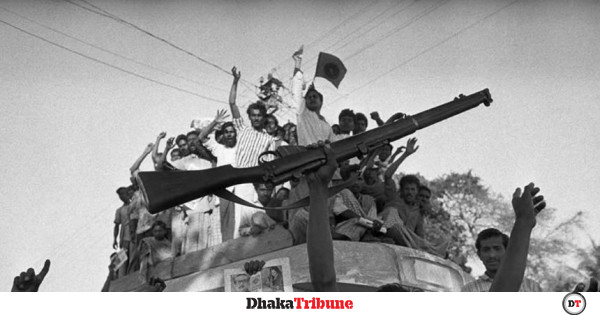
Every year on July 17, people worldwide mark International Criminal Justice Day. On January 24, 1972, the Bangladesh Collaborators (Special Tribunal) Order 1972 was passed to try the prominent Pakistan Army collaborators during the Liberation War.
This was known as the Dalal Act. Although the Act was already in effect, on July 17, 1973, the then-law minister Manoranjan Dhar proposed “The International Crimes (Tribunals) Bill, 1973” for the National Parliament’s consideration. The measure was proposed with the intention of “making regulations for apprehension, trial, and punishment of persons involved in crimes of genocide, crimes against humanity, war crimes, and other crimes committed under international law.” The bill was unanimously passed by the National Assembly that day.
When the Dalal Act was repealed on December 31, 1975, the prosecution of war criminals under that Act was stopped. However, how war criminals are brought to justice generally arises with the repeal of this statute and the declaration of amnesty by the Bangladeshi government.
In the national context, more than 37,000 people were detained and tried in various tribunals under the Act, passed to try war criminals, within a month and a half following the end of the War of Independence. On May 17, 1973, the Bangladeshi government issued a general amnesty for those held under the “Dalal (Special Tribunals) Order 1972” who had not yet been charged with any specific war crimes.
According to the proclamation, there will be no amnesty for people who have been found guilty of any of the 18 crimes listed, including treason, rape, murder, attempted murder, arson, kidnapping, etc. Because of this, after the announcement of amnesty, under the “Dalal (Special Tribunals) Order, 1972”, out of about 37,000 people, about 26,000 were released, but more than 11,000 people remained in jail, and their trial proceedings continued. As a result, the Bangladeshi government has never granted war criminals amnesty.
Therefore, there is still time to bring war criminals to justice. Though there are several instances when the legal terminology deviates from “international standard,” the question of whether the “International Crimes (Tribunal) Act” of 1973 is generally “international standard” remains. Will the war criminals’ trials be criticized internationally?
The Statute of Rome, which established the International Criminal Court, was ratified by 120 governments on July 17, 1998. 120 states out of the 160 states that participated in the negotiations voted in favour, 7 voted against it, and the remaining states abstained. So, we can say that “international standards” are merely a concept that varies.
This quality improvement is made possible by global politics and power. Before World War II ever broke out, in 1943, the Soviet Union tried war criminals using its own legal system. Many nations held war crimes trials in domestic courts governed by their laws after World War II. None of these war criminal prosecutions have faced criticism from the international community. Even the highly publicized Eichmann Trial, which was held in an Israeli court and governed by Israeli law, had wide international acclaim.
The Charter of the International Military Tribunal, 1945, was, at that time, the acknowledged international document for the trial of war crimes. Therefore, it is impossible to determine at any time whether a domestic law meets an international norm. Instead, it is crucial to decide whether a domestic law is commonly recognized in the international community or if it runs against that community’s fundamental principles and values.
It has been over 13 years since the International Criminal Tribunal was established to try crimes against humanity in 1971. The pace of the initial trial has slowed somewhat over the years, but the trial has not stopped. In all, 51 cases have been decided so far. The prosecution wing of the tribunal says that 131 convicts have been sentenced to death and life imprisonment in 51 cases so far (till February 22).
In imitation of the most recent information from the prosecution branch of the tribunal, 34 cases are currently pending. Of these, 16 cases are at the stage of taking evidence. In 7 cases, the last stage of the trial is the hearing of arguments. Most of the rest are in the complaint formulation stage.
It is the responsibility of the state to investigate the crimes committed during the Great War of Liberation in 1971 and bring the perpetrators to justice. Bangladesh has established a unique precedent in the trial of international crimes, ie, crimes against humanity and genocide, by setting the “International Crimes Tribunal” in its sovereign parliament in 1973.
This judicial system has attracted the interest and attention of the world community by ensuring open, transparent, and all kinds of opportunities for the defense of the accused. Bangladesh’s “International Criminal Tribunal” is the subject of positive discussion in today’s global legal arena.
The trial of brutal crimes of this nature in the judicial forum formed in the domestic law made in 1973 by the irresistible promise of the Father of the Nation Bangabandhu will play a role in preventing the occurrence of genocide and crimes against humanity in any part of the world in the future.
Apurba Mogumder is a student of law.
This post was originally published on this site be sure to check out more of their content.








